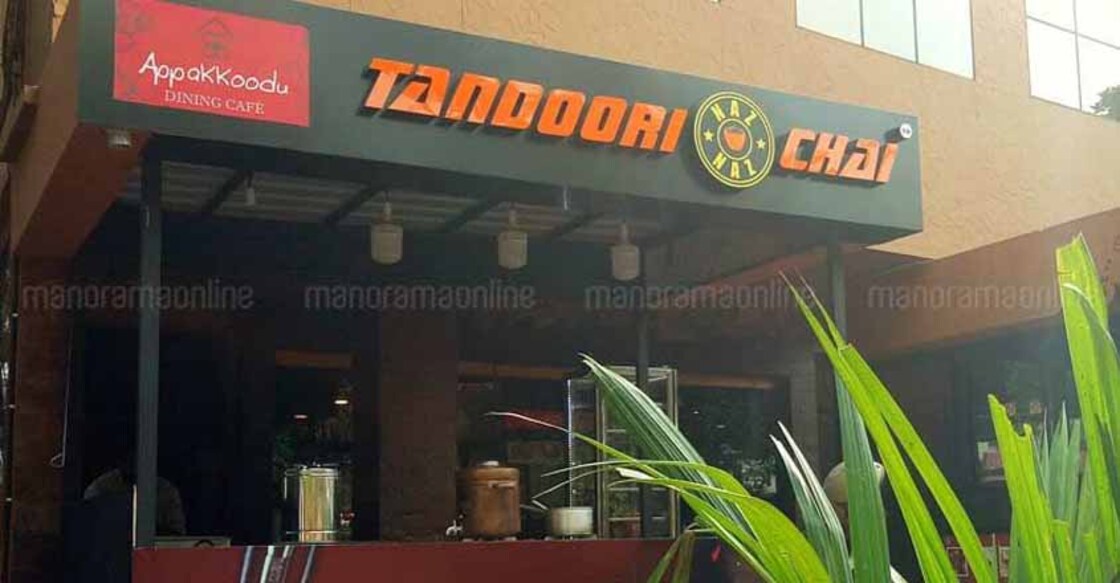Jaywalking down memory lane in Kozhikode with a whiff of tandoori tea

Mail This Article
Walk around to get the hang of a place. You have to drink in the sights, feel the smell and enjoy every touch to be in sync with a place scape. That's how you come to love a land… that's how you get to love Kozhikode. Every nook, every cranny, lane and by-lane whip up the heaviness of nostalgia. That's the pull of Kozhikode. It just refuses to fade into nothingness.
As you take the bank road from Mavoor Road to Mananchira, just before you reach the CSI complex, the road takes a right turn bringing up to vision the long road that leads out to the beach. Then there is the overbridge that stretches along hotel Paragon and stretches out. As you walk along C H Overbridge, one of the first such railway spans, something amusing springs up to mind.
They are the gates … the railway gates. The city is famous for its second gate and fourth gate. The second gate and fourth gate are as good as place names. They are railway level crossings. But then where are the first and third gates?

Walk along the railway station and turn to Mitai Theruvu (Sweets Street), and there stands an overbridge to the left that winds its way to Valiyangadi. The first gate was just below this bridge. And the level cross was on the long road, the continuation of the Kammath Lane road that stretched ahead to Valiyangadi. But when the overbridge rose up, the level cross and the railway gate faded into oblivion.
There was once a road from hotel Paragon to Tagore Hall that opened out to the beach. That was where the third gate was. It's been 35 years now since the C H Overbridge was completed and thrown open to traffic. With the overbridge coming up, the third gate, too, got pushed to the realm of memory. Go to the place today and you won't find even a pebble to remind you of the landmark that was once there.
A new chapter in history opened up with the arrival of the concrete structure. Work on the overbridge got going by April 1980 and it was inaugurated in November 1983. That sealed the fate of the third gate.

More interesting perhaps is a movie ad, rather a poster on the girder below the Kannur Road bridge. The years have gone by, but not the poster. It still stands there. It has braved the vagaries of the weather and stood the test of time. The poster is about three years junior to the bridge … February 26, 1986… says the date of the Mammootty-I V Sasi blockbuster 'Vartha.' The poster turns 33 in January, which is just around the corner.
As you walk along the bridge, you can only gasp at the changes the city of Kozhikode has gone through. The old order has given way to the new.
Walk down the bridge and move on to the beach. Just before Tagore Hall to the left stands the Appakoodu Dining Cafe. There's a small joint in front of the cafe that wears 'tandoori chai' in orange on its black forehead.
One has heard of Tandoori rotis, meat and chicken, not tandoori tea. Yonder stands the tandoori oven with the embers sparkling all around. Peep inside and you’ll see red hot earthen pots inside the big oven. Shop owner P K Nazar takes a long poker and lifts up a big pot. He pours into it half boiled tea along with crushed ginger and cardamom. The tea froths up, sizzling hot, with the aroma spreading all over. He then pours out the piping hot tea into another earthen cup and serves it at the table.

You cannot sip tandoori tea just as it is…you need to blow into it to cool it down. A whiff of north India creeps in. Nazar got the idea of tandoori tea when he once happened to go to his cousin's hotel in Pune. Chelannur-native Nazar has been in the hotel business for over three decades. He started his venture with the simple ideal of being of service to those in need of food. Loft thought indeed!
Coming back to tea, to think of it, it is so much more soothing than coffee!
The gates, the poster and the bridge … that's the stuff of memories.

